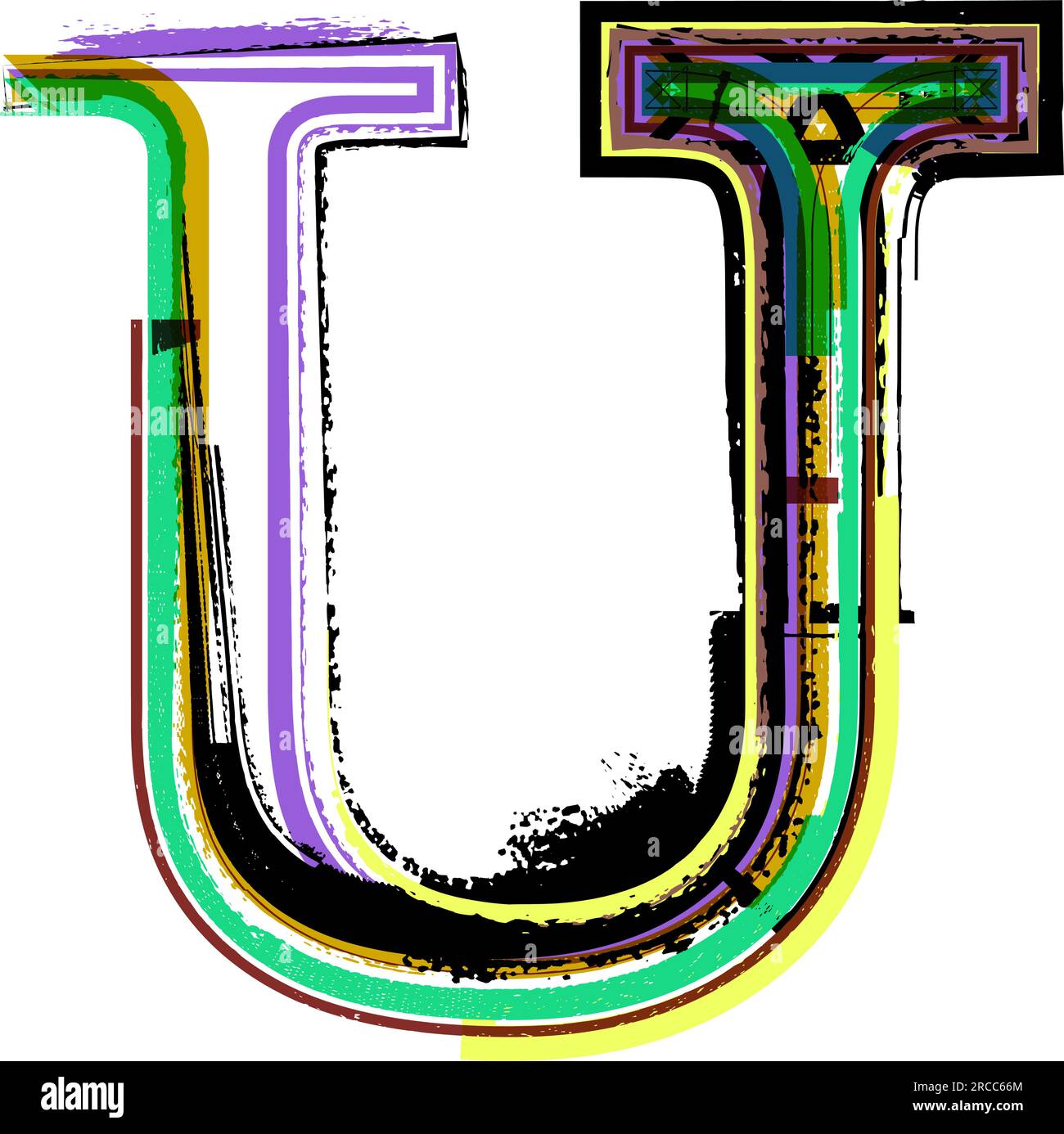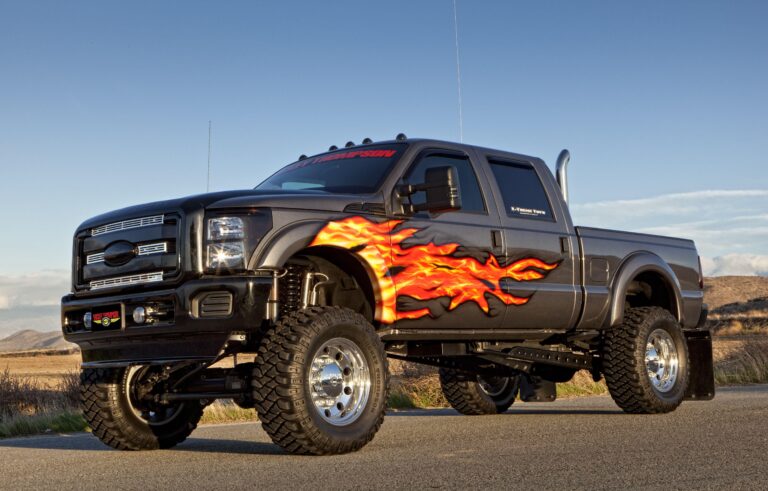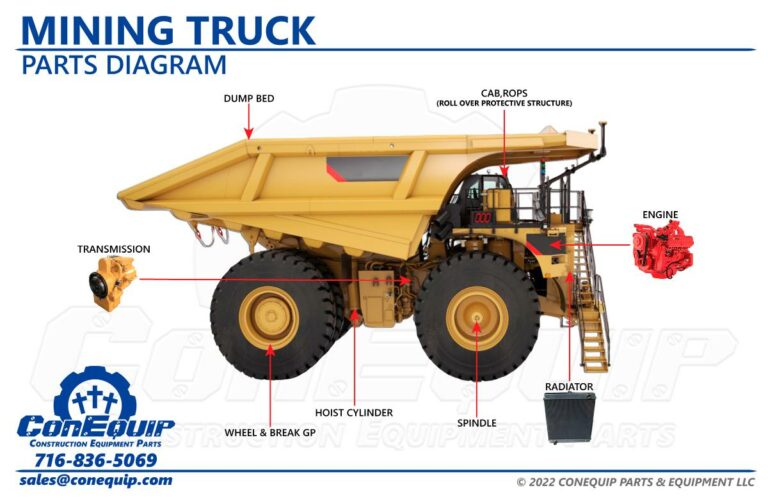U-Haul Truck Rental Rates: Your Comprehensive Guide to Affordable Moving
U-Haul Truck Rental Rates: Your Comprehensive Guide to Affordable Moving cars.truckstrend.com
Moving, whether across town or across the country, is often cited as one of life’s most stressful events. Amidst the packing, purging, and planning, one of the most critical decisions is how to transport your belongings. For millions, U-Haul stands as the ubiquitous solution, offering a fleet of rental trucks designed to accommodate moves of all sizes. However, understanding "U-Haul Truck Rental Rates" is not as straightforward as a single fixed price. It’s a dynamic calculation influenced by a multitude of factors, and grasping these nuances is key to accurately budgeting your move and potentially saving a significant amount of money. This comprehensive guide will demystify U-Haul’s pricing structure, providing you with the knowledge to make informed decisions and navigate the rental process with confidence.
Understanding U-Haul’s Pricing Model: The Core Components
U-Haul Truck Rental Rates: Your Comprehensive Guide to Affordable Moving
U-Haul’s pricing model is designed to be flexible, adapting to the specific needs and circumstances of each customer. While the final price you pay will encompass several elements, it fundamentally breaks down into a few core components:
- The Base Rate (or Daily Rate): This is the foundational cost for renting the truck for a specified period, typically 24 hours for in-town rentals or a set number of days for one-way moves. This rate varies significantly based on the truck size, location, demand, and time of year. It covers the cost of the vehicle itself.
- Mileage Charge: This is arguably the most variable and impactful cost for most renters. U-Haul charges a per-mile rate, which is added on top of the base rate. For one-way rentals, the mileage allowance is usually built into the one-way fee, but additional miles will incur a charge. For in-town rentals, every mile driven is typically charged. The per-mile rate can range from $0.49 to $0.99 or even more, depending on location and demand.
- Fuel Costs: Critically, U-Haul trucks are rented with a certain amount of fuel (usually a quarter tank) and must be returned with the same amount. The cost of fuel consumed during your rental period is not included in the rental rate and is entirely your responsibility. Failure to refuel can result in significant surcharges from U-Haul, often at a premium per-gallon rate.
- Environmental Fee: A small, mandatory fee (typically around $1-$5) is added to every rental. This fee contributes to U-Haul’s initiatives for environmental sustainability, such as maintaining cleaner vehicles and promoting fuel efficiency.
- Sales Tax: As with most purchases, applicable state and local sales taxes will be added to your total rental cost. This percentage varies by location.

Understanding these core elements is the first step towards accurately estimating your total U-Haul rental expense.
Decoding Truck Sizes and Their Corresponding Rates
U-Haul offers a diverse fleet of vehicles, each designed to suit different moving needs. The size of the truck is a primary determinant of its base rental rate. Here’s a breakdown of the common truck sizes and their general use cases, along with estimated rate components (which are highly variable):

Pickup Truck:
- Use Case: Small local moves, hauling large items, DIY projects, dorm room essentials. Not ideal for furniture unless disassembled.
- Estimated Base Rate: Typically the lowest, often starting from $19.95 – $29.95 per day.
- Estimated Mileage Rate: Usually $0.79 – $0.99 per mile.
- Note: Open bed, no ramp.

-
Cargo Van:
- Use Case: Studio apartments, small one-bedroom apartments, local deliveries, moving appliances or a few pieces of furniture. Enclosed and secure.
- Estimated Base Rate: Slightly higher than pickups, often from $19.95 – $29.95 per day.
- Estimated Mileage Rate: Usually $0.79 – $0.99 per mile.
- Note: Enclosed, but no ramp.
-
10 ft Truck:
- Use Case: Studio to one-bedroom apartments. Ideal for small furniture, boxes, and a few major appliances.
- Estimated Base Rate: Generally $19.95 – $29.95 per day for in-town; higher for one-way.
- Estimated Mileage Rate: Typically $0.79 – $0.99 per mile for in-town; one-way rates are often bundled.
- Note: The smallest box truck with a loading ramp.
-
15 ft Truck:
- Use Case: One to two-bedroom homes or larger apartments. Accommodates more furniture, appliances, and boxes. Most popular for mid-sized moves.
- Estimated Base Rate: Ranges from $29.95 – $39.95 per day for in-town; significantly higher for one-way.
- Estimated Mileage Rate: Around $0.69 – $0.89 per mile for in-town.
- Note: Features a low deck and a loading ramp.
-
17 ft Truck:
- Use Case: Two to three-bedroom homes. Offers more space than the 15ft, good for larger furniture sets and more boxes.
- Estimated Base Rate: Typically $29.95 – $39.95 per day for in-town; one-way rates are considerably higher.
- Estimated Mileage Rate: Around $0.59 – $0.79 per mile for in-town.
- Note: Similar features to the 15ft, just larger.
-
20 ft Truck:
- Use Case: Three to four-bedroom homes. Suitable for larger families with substantial furniture and many boxes.
- Estimated Base Rate: Often $39.95 – $49.95 per day for in-town; one-way rates are substantial.
- Estimated Mileage Rate: Around $0.49 – $0.69 per mile for in-town.
- Note: Ample space, comes with a loading ramp.
-
26 ft Truck:
- Use Case: Four+ bedroom homes, large family moves, or commercial needs. U-Haul’s largest rental truck.
- Estimated Base Rate: The highest daily rate, often $39.95 – $59.95 per day for in-town; one-way rates can be hundreds to thousands of dollars.
- Estimated Mileage Rate: Around $0.49 – $0.59 per mile for in-town.
- Note: Maximum capacity, also includes a loading ramp.
Important Disclaimer: The "estimated base rates" for in-town rentals often appear very low (e.g., $19.95). However, these are merely starting points. The actual base rate for your specific rental can be significantly higher based on demand, location, and time of year. Always obtain a direct quote from U-Haul for precise pricing.
Factors That Influence Your U-Haul Rental Cost
Beyond truck size and the core components, several external and optional factors can significantly sway your final U-Haul bill:
- Location (Pick-up & Drop-off):
- In-Town (Round Trip): You pick up and drop off the truck at the same U-Haul location. These rentals typically have lower daily rates and a per-mile charge for all miles driven.
- One-Way: You pick up the truck at one location and drop it off at another. One-way rentals often have a higher base rate (which includes a set mileage allowance and a specific number of rental days) but eliminate the need to drive back to the origin. The pricing for one-way rentals is heavily influenced by supply and demand between the two locations.
- Time of Year & Demand: Moving during peak seasons (summer months, particularly June-August) or at the end of the month will almost always result in higher rental rates due to increased demand. Off-peak times (mid-week, mid-month, fall/winter) often offer better deals.
- Day of the Week: Weekends, especially Saturdays, are premium rental days and usually come with higher rates compared to weekdays.
- Duration of Rental: While U-Haul primarily operates on a daily rental model, one-way rentals are given a set number of days. Exceeding this allowance will incur additional daily charges.
- Availability: If a specific truck size is in high demand and low supply at your desired location, its price will naturally increase.
- Add-ons & Accessories: U-Haul offers various optional products and services that add to your total cost:
- Damage Coverage (Safemove, Safemove Plus): These protection plans limit your financial liability for damages to the rental truck or your belongings. While optional, they are highly recommended for peace of mind. Costs vary based on truck size and coverage level.
- Moving Supplies: Boxes, packing tape, moving blankets, hand trucks, utility dollies, furniture pads, and other packing essentials are available for purchase or rental.
- Towing Equipment: If you plan to tow your vehicle or a trailer, you’ll need to rent a tow dolly or an auto transport, which are separate rental items with their own rates.
Practical Advice & Actionable Insights for Saving Money
Armed with an understanding of U-Haul’s pricing, here are practical tips to help you minimize your moving expenses:
- Book in Advance: Especially for peak moving times or one-way rentals, booking weeks or even months ahead can lock in better rates and ensure truck availability.
- Consider In-Town vs. One-Way Carefully: If you’re moving a relatively short distance and don’t mind the return trip, an in-town rental is almost always cheaper per mile. For long-distance moves, the convenience of one-way often outweighs the higher base rate.
- Choose the Right Truck Size: This is paramount. Don’t rent a 26 ft truck for a studio apartment, as you’ll pay more for unused space and burn more fuel. Conversely, under-renting can lead to needing multiple trips (increasing mileage and fuel costs) or even a second rental. Use U-Haul’s online space estimator tool.
- Be Mindful of Mileage: Plan your route meticulously. Avoid unnecessary detours. Every mile counts, particularly for in-town rentals.
- Return Full of Fuel: Always refuel the truck to the level you received it at. U-Haul’s refueling charges are significantly higher than gas station prices.
- Rent During Off-Peak Times: If your schedule allows, move mid-week (Tuesday-Thursday), mid-month, and outside of the summer season to secure lower rates.
- Check for Discounts/Promotions: Keep an eye out for U-Haul promotions, especially during slower periods or for specific locations. Student, military, or AAA discounts are sometimes available.
- Evaluate Damage Coverage Needs: While advisable, carefully consider which level of damage coverage you need. Your personal auto insurance policy might offer some coverage for rental trucks (check your policy!), potentially allowing you to decline U-Haul’s basic options.
- DIY Moving Supplies: Purchase boxes and packing supplies from local stores, or seek out free boxes from grocery stores, liquor stores, or online marketplaces. Renting reusable moving boxes can also be a cost-effective and eco-friendly alternative.
How to Get a Quote and Book Your U-Haul
Getting an accurate quote and booking your U-Haul is a straightforward process:
- Visit U-Haul.com or Use the U-Haul App: This is the easiest way to start.
- Enter Pick-up and Drop-off Locations: Specify if it’s an in-town (same location) or one-way (different locations) move.
- Select Your Desired Dates and Times: Be precise, as this impacts availability and pricing.
- Choose Your Truck Size: The system will guide you based on your estimated load.
- Review the Estimated Total: Before confirming, you’ll see a breakdown of the estimated base rate, mileage rate (or one-way fee), and any mandatory fees. At this stage, you can also add optional items like coverage, dollies, or moving blankets.
- Confirm Your Reservation: Once you’re satisfied, confirm your booking. You’ll receive a confirmation email with all the details.
Remember, the quote provided online is an estimate. While typically accurate, unforeseen circumstances (like driving more miles than anticipated) will alter the final cost.
U-Haul Truck Rental Rates: Estimated Price Table
Please note: All prices are estimates and highly variable based on location, demand, season, and specific U-Haul center. Always obtain a direct quote from U-Haul for accurate pricing for your specific move.
| Truck Size | Base Rate (In-Town, per day) Est. | Mileage Rate (In-Town, per mile) Est. | Typical Use Case | Fuel Tank Capacity (Est.) | Notes |
|---|---|---|---|---|---|
| Pickup Truck | $19.95 – $29.95 | $0.79 – $0.99 | Small local hauls, dorm rooms, DIY projects | 20-30 gallons | Open bed, no ramp, 2-person seating. |
| Cargo Van | $19.95 – $29.95 | $0.79 – $0.99 | Studio/1-BR apartment, appliances, local deliveries | 20-30 gallons | Enclosed, secure, no ramp, 2-person seating. |
| 10 ft Truck | $19.95 – $29.95 | $0.79 – $0.99 | Studio to 1-BR apartment, small furniture | 30-35 gallons | Enclosed box, loading ramp, 2-person seating. |
| 15 ft Truck | $29.95 – $39.95 | $0.69 – $0.89 | 1-2 BR home, mid-sized furniture | 40 gallons | Low deck, loading ramp, 3-person seating. Most popular. |
| 17 ft Truck | $29.95 – $39.95 | $0.59 – $0.79 | 2-3 BR home, more furniture & boxes | 40 gallons | Similar to 15ft, but more cargo space, loading ramp, 3-person seating. |
| 20 ft Truck | $39.95 – $49.95 | $0.49 – $0.69 | 3-4 BR home, large furniture, many boxes | 40 gallons | Ample space, loading ramp, 3-person seating. |
| 26 ft Truck | $39.95 – $59.95 | $0.49 – $0.59 | 4+ BR home, large moves, commercial | 57 gallons | Largest truck, maximum capacity, loading ramp, 3-person seating. |
| One-Way Rentals | Variable, significantly higher | Mileage allowance included, then per-mile charge | Long-distance moves, pick up at one, drop off at another | Varies by truck | Rate depends heavily on origin/destination demand & availability. |
| Additional Fees | |||||
| Environmental Fee | $1.00 – $5.00 | N/A | Mandatory contribution to sustainability | N/A | Applied to all rentals. |
| Sales Tax | Varies by state/locality | Varies by state/locality | Standard tax on rental services | N/A | Applied to total rental cost. |
| Fuel Costs | Your Responsibility | Your Responsibility | Cost of gas consumed during rental | N/A | Must return with same fuel level to avoid surcharges. |
| Optional Coverage | Varies by truck/plan | N/A | Safemove, Safemove Plus, roadside assistance | N/A | Recommended, but optional. |
| Moving Supplies | Varies by item | N/A | Boxes, dollies, blankets, tape, etc. | N/A | Purchased or rented separately. |
| Towing Equipment | Varies by item | N/A | Auto transport, tow dolly | N/A | Separate rental for towing a vehicle. |
Frequently Asked Questions (FAQ) about U-Haul Truck Rental Rates
Q1: Are mileage charges included in the base rate for U-Haul trucks?
A1: Generally, no. For in-town rentals, the base rate is separate from the per-mile charge. For one-way rentals, a certain mileage allowance is often built into the higher one-way fee, but exceeding that allowance will incur additional per-mile charges.
Q2: Do I need to refill the gas tank before returning the U-Haul truck?
A2: Yes, absolutely. You are expected to return the truck with the same amount of fuel as when you picked it up (usually a quarter tank). Failing to do so will result in U-Haul charging you for the fuel at a premium rate, which is significantly more expensive than filling up at a gas station yourself.
Q3: What kind of insurance do I need for a U-Haul rental?
A3: While U-Haul offers optional coverage plans like Safemove and Safemove Plus (which cover damage to the truck, your cargo, and medical expenses), your personal auto insurance policy might extend some coverage to a rental truck. It’s crucial to check with your personal auto insurer before declining U-Haul’s protection plans. Without any coverage, you are personally liable for any damages.
Q4: Can I rent a U-Haul truck with a regular driver’s license?
A4: Yes. For all U-Haul trucks (from pickup trucks to the 26 ft truck), a standard driver’s license (Class D in most states) is sufficient. A Commercial Driver’s License (CDL) is not required.
Q5: What happens if I return the U-Haul truck late?
A5: Returning the truck late can result in additional charges. U-Haul typically charges for each additional day or part thereof that the truck is kept beyond the agreed-upon return time. It’s best to communicate with U-Haul if you anticipate a delay to avoid unexpected fees.
Q6: Can I change my U-Haul reservation after booking?
A6: Yes, in most cases, you can modify your reservation online through your U-Haul account or by calling customer service. Changes to truck size, dates, or locations may affect your rental rate and availability.
Q7: How is "in-town" vs. "one-way" priced differently?
A7: "In-town" rentals are typically cheaper per day but charge per mile driven. "One-way" rentals have a higher fixed base rate (which includes a set number of days and an estimated mileage allowance for the journey) and are designed for moving from one city to another, with drop-off at a different U-Haul location. The one-way rate is heavily influenced by demand for that specific route.
Q8: What is the environmental fee for?
A8: The environmental fee is a small, mandatory charge that contributes to U-Haul’s efforts to maintain an environmentally responsible fleet, including vehicle maintenance, waste management, and sustainability initiatives.
Concluding Summary
Navigating U-Haul truck rental rates requires a clear understanding of the various factors that contribute to the final cost. From the base rate and mileage charges to truck size, location, and the timing of your move, each element plays a role. By carefully planning your move, choosing the right truck, optimizing your route, and being mindful of fuel, you can significantly control your expenses. While the initial listed rates might seem low, remember to factor in mileage, fuel, and any necessary add-ons to get a true picture of your moving budget. With this comprehensive guide, you are now equipped with the knowledge to make informed decisions, ensuring your next U-Haul rental is as efficient and cost-effective as possible. Happy moving!






